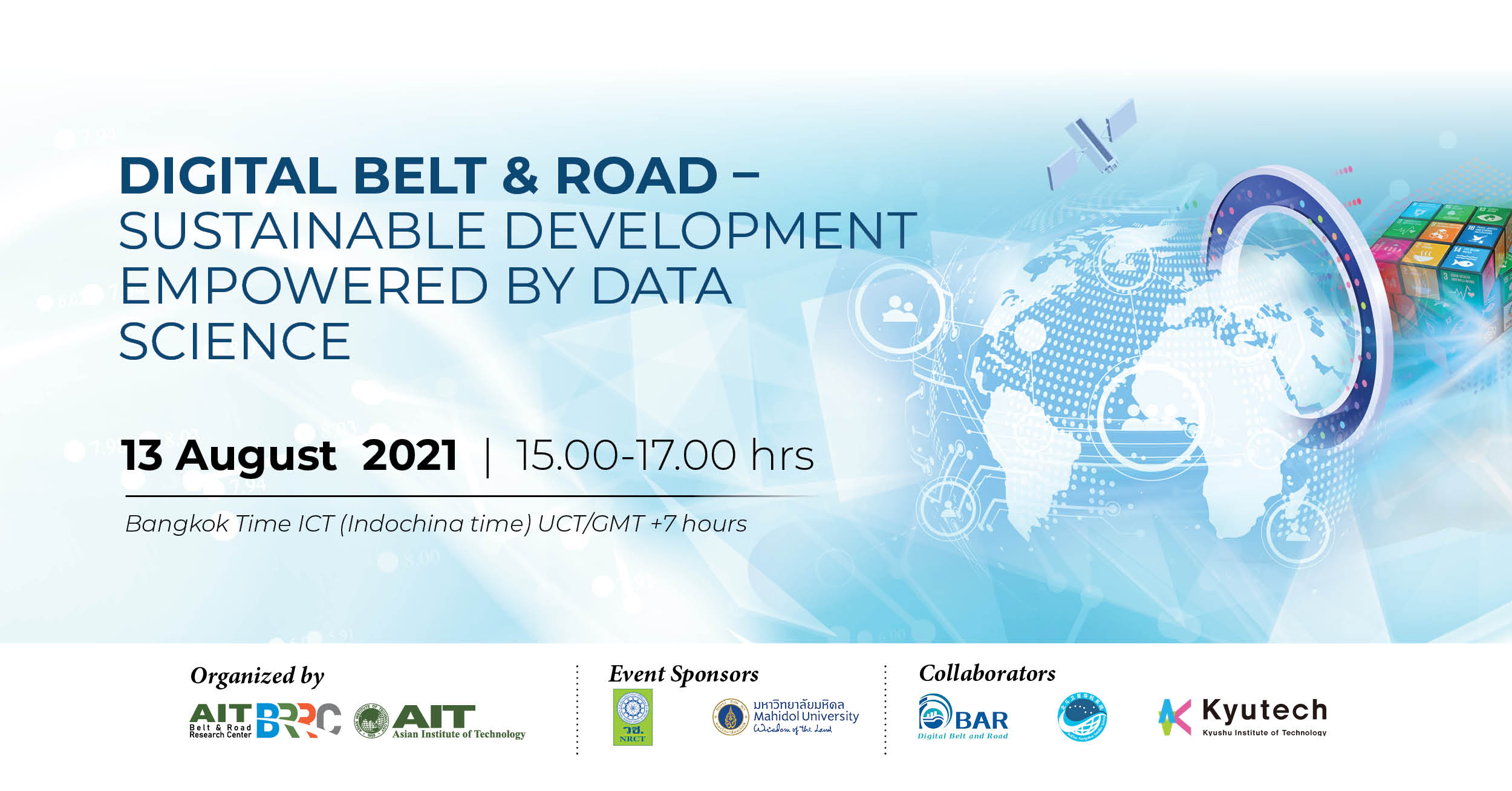By Mae Thiwari
August 13, 2022 -- In a webinar organized on 13 August by the AIT Belt and Road Research Center (BRRC), experts shared the latest data science application technologies that can propel countries in the Belt and Road region towards achieving sustainable development.
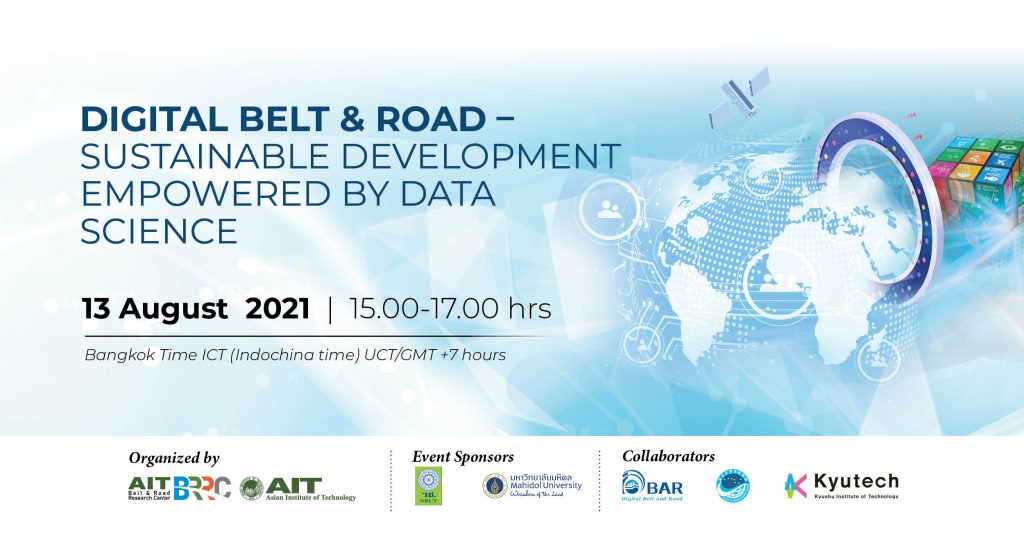
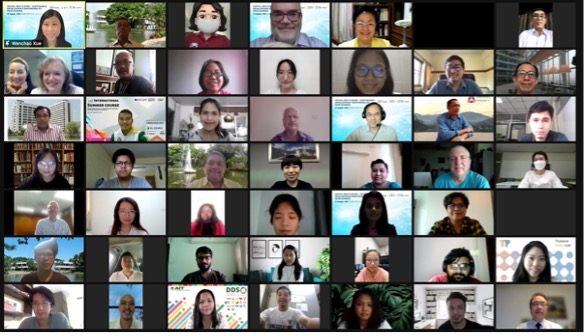
The webinar, titled ‘Digital Belt & Road – Sustainable Development Empowered by Data Science’, was second in the current AIT Belt and Road Webinar series. The opening distinguished speaker was Professor Guo Huadong of the Chinese Academy of Sciences. Other keynote speakers sharing knowledge and experience included Ms. Miao Tian, Program Manager, International Cooperation Center of China Satellite Navigation Office; Prof. Fang Chen, Deputy Secretary-General of “Digital Belt and Road” Program (DBAR); Dr. Salvatore G.P. Virdis, AIT Assistant Professor of Remote Sensing and Geographic Information System (GIS); and AIT Alumna Ms. Withanage Dulani Chamika, a PhD student in Space Engineering at Kyushu Institute of Technology, Japan. AIT’s Dr. Ekbordin Winijkul, AIT Assistant Professor in Environmental Engineering and Management program, Department of Energy, Environment and Climate Change used this occasion to launch the ‘AIT-NRCT project on Application of Big Earth Data in Support of the Sustainable Development Goals in Thailand’ – a research project in collaboration with the National Research Council of Thailand (NRCT).
As the famous phrase goes, “data is the new oil,” many successful businesses are reaping the benefits of data science technology – the process of refining raw data into valuable information. But data science is not only good for building personal wealth, it can also build sustainable development, as discussed in the webinar.
With the launch of Belt and Road Initiative by China in 2013 to improve connectivity and cooperation on a transcontinental scale, the Digital Belt and Road (DBAR) Program was launched in 2016 by Chinese scientists in cooperation with experts from 19 countries, including those from AIT, to address the gap in data and tools that can help realize the UN SDGs.
 “There is the need to improve data access and information sharing among different organizations and countries,” said Prof. Guo Huadong, Chair of the Digital Belt and Road Program and a member of the Chinese Academy of Sciences, as he emphasized how Big Earth Data Platform of DBAR could address the gap through the sharing of “digital sources, information, data, and above all scientific knowledge,” in his distinguished opening remarks.
“There is the need to improve data access and information sharing among different organizations and countries,” said Prof. Guo Huadong, Chair of the Digital Belt and Road Program and a member of the Chinese Academy of Sciences, as he emphasized how Big Earth Data Platform of DBAR could address the gap through the sharing of “digital sources, information, data, and above all scientific knowledge,” in his distinguished opening remarks.
Through the Big Earth Data Platform of DBAR which stores and shares data collected from the land; ocean; and space, partner organizations and countries can access the data, translate it into information, and utilize it to address several SDGs. With the launch of the SDG satellite in October 2021, more data of the earth environment will be available for free and will be shared among partners in the Belt and Road countries.
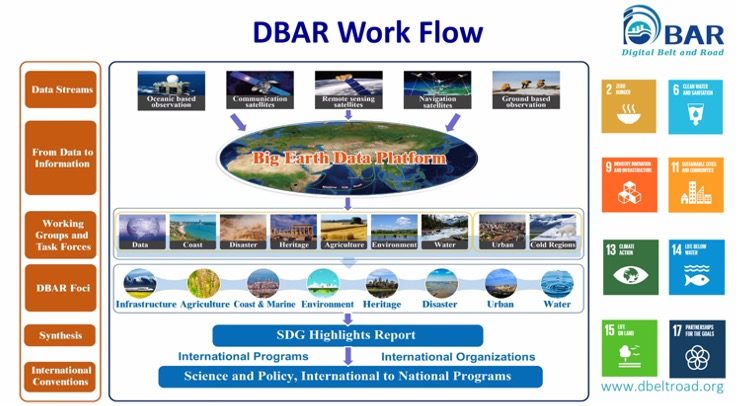
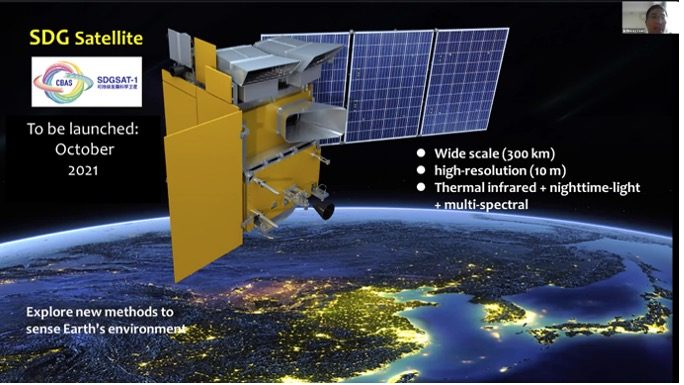
Demonstrating how free and open access to data can contribute to sustainable development, Dr. Salvatore G.P. Virdis gave an example of data science application through AIT’s current project ‘Climate Change Risk Assessment for Southeast Asian Lakes (CCRASEAL)’. With its expertise, the team at AIT transforms data into useful information to predict lake surface temperatures, which reveals the impact of climate change to life on land, addressing SDG15 and SDG13.
It is clear from the webinar that data science technology alone is not enough to drive sustainable development – cooperation among countries is also key when it comes to work on the Big Earth scale. This is why DBAR, NRCT, and Mahidol University are currently planning a series of expert talks on Big Earth Data for Sustainable with more details to be made available soon.
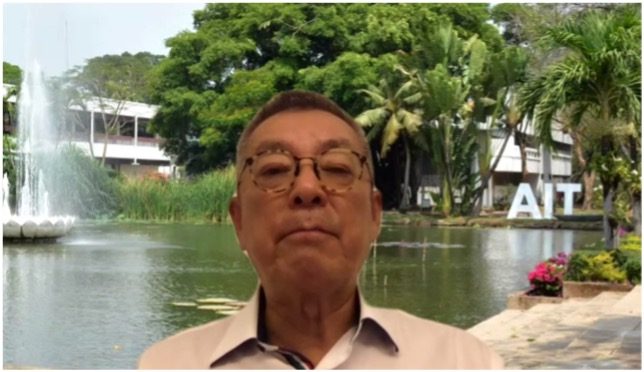 Concluding the event, AIT President Eden Woon reiterated how every presentation in the webinar represented what AIT stands for, as shown as its motto – “Social Impact with Innovation”. From Big Earth Data Platform; Beidou Satellite; Remote Sensing; to Space technologies, the President pointed to the fact that all “will help us solve the world’s environmental problems, and this is what AIT does.”
Concluding the event, AIT President Eden Woon reiterated how every presentation in the webinar represented what AIT stands for, as shown as its motto – “Social Impact with Innovation”. From Big Earth Data Platform; Beidou Satellite; Remote Sensing; to Space technologies, the President pointed to the fact that all “will help us solve the world’s environmental problems, and this is what AIT does.”
---
The recorded event of ‘Digital Belt & Road – Sustainable Development Empowered by Data Science’ webinar can be accessed via this link:
https://www.facebook.com/ecAIT/videos/3040152266221270
https://www.facebook.com/ecAIT/videos/3040152266221270
The next webinar in AIT Belt and Road series will be in October, with Mr. Jin Liqun, President of the Asian Infrastructure Investment Bank, as a distinguished speaker. Please stay tuned!

